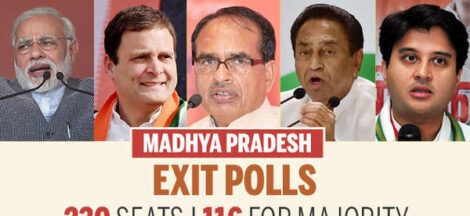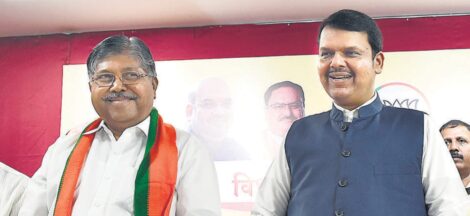By Dr Arun Mitra
Reports of medical students and young doctors committing suicide even in the premier institute AIIMS is a matter of grave concern. This issue needs serious introspection on the part of medical profession as well as the society. Depression that these young doctors and students have to pass through may have several causes, both external and internal. Stress starts in students and their parents even as children enter into 10+1 class and are preparing to get into medical course. Many promising students remain devoid of the opportunity to get admission to the course they have aspired for all through their schooling because of exorbitant increase in the tuition fees due to privatization of medical education. Just because one does not have money to pay tuition fee to the tune of nearly one crore rupees for graduation and another one crore for post-graduation they fail to become doctors. They then look for other allied courses but never get reconciled to this.
According to psychiatrists, the possible causes of depressive and suicidal symptomatology in medical students include stress and anxiety secondary to the competitiveness of medical school; inability to cope with the vast curriculum; repeated examinations; high expectations of the parents, teachers, and patients, and time constraints for pursuing their alternative interests etc. Weakening cohesiveness in the society is perpetuating the problem. Strong social relations were helpful in reducing stress. Remedial measures include restructuring of medical school curricula and student evaluations, reducing barriers to mental health services, including addressing the stigma of depression, having a dedicated psychological help clinic in the campus or having alternative means of communication through a helpline or E‑mail, peer mentorship programmes, consultation by psychiatrists and clinical psychologists, life skills counseling etc.
Interestingly the Indian Medical Association (IMA) decided to start the IMA Initiative for Emotional Health & Emotional Well-Being of Medical Students and Doctors in India, ostensibly considering the increased rate of mental illness and in some cases even suicides, especially in young medicos. The Karnataka unit of IMA even organized a workshop comprising presentations by Isha Yoga Foundation, Banjara Academy, Laughter Yoga, and Art of Living Foundation.
Dr. Srinivas Kakilaya, an Internal Medical Specialist at Mangaluru, and a few more doctors including psychiatrists, neurologist and family medical practitioner challenged the approach of IMA. They called upon the IMA not to promote unproven, non-evidence based practices on such an issue of mental health, which is so delicate. They pointed out that in modern medicine there are innumerable resources regarding suicidal risk, its identification and management, including emergency care. There is enough evidence regarding the effectiveness of dialectical behavioural therapy and cognitive behavioural therapy in preventing suicides. It is in fact dangerous to promote yoga and such methods for anyone with suicidal ideation, and deny evidence-based critical interventions required for such people, they pointed out. This will also send wrong message about scientific method of treating depression. Already in India, there is a treatment gap of 87.2 to 95.7 for depression in community-based studies; therefore, promotion of methods such as yoga will create further confusion and denial of care for the needy, they said.
The medical ethics demands of a medical practitioner to be rational and scientific in approach while treating a patient. The Indian Medical Council (Professional Conduct, Etiquette & Ethics) Regulations, 2002 says no person other than a doctor having qualification recognised by Medical Council of India and registered with Medical Council of India/State Medical Council (s) is allowed to practice modern system of medicine or surgery. A person obtaining qualification in any other system of medicine is not allowed to practice modern system of medicine in any form.
As per clause 1.2.1 of this the principal objective of the medical profession is to render service to humanity with full respect for the dignity of profession and man. Physicians should merit the confidence of patients entrusted to their care, rendering to each a full measure of service and devotion. Physicians should try continuously to improve medical knowledge and skills and should make available to their patients and colleagues the benefits of their professional attainments. The physician should practice methods of healing founded on scientific basis and should not associate professionally with anyone who violates this principle. The honoured ideals of the medical profession imply that the responsibilities of the physician extend not only to individuals but also to society.
In our country there are already several myths and unscientific practices regarding diseases and their cure, which continue to persist even among the literates. This is despite several advances in the medical science and information mechanism.
It is saddening that the government is not only apathetic towards many irrational ideas on health but is very subtly promoting irrational ideas. Use of cow urine, astrology in the hospitals with advisory to the patients to visit these astrologers, the ‘Garbh Vigyan Sanskar’ by Arogya Bharti advising couples to recite shlokas at the time of mating so as to have customized babies of their choice – Uttam Santati. Some ministers have been seen to attend the conference of ‘Tantriks’ and felicitate them in Gujarat. Such acts lead to misconceptions in the minds of people and spread obscurantism. It is for the medical bodies, rationalist societies and right thinking people with scientific outlook to question rather than promoting Yoga for everything which might have only placebo effect, said Dr S K Prabhakar, a psychiatrist from Ludhiana.
(IPA Service)
The post Mental Health: Irrational Practices Can Be Harmful appeared first on Newspack by India Press Agency.


